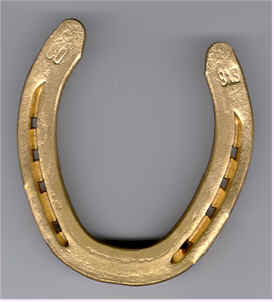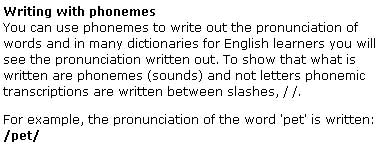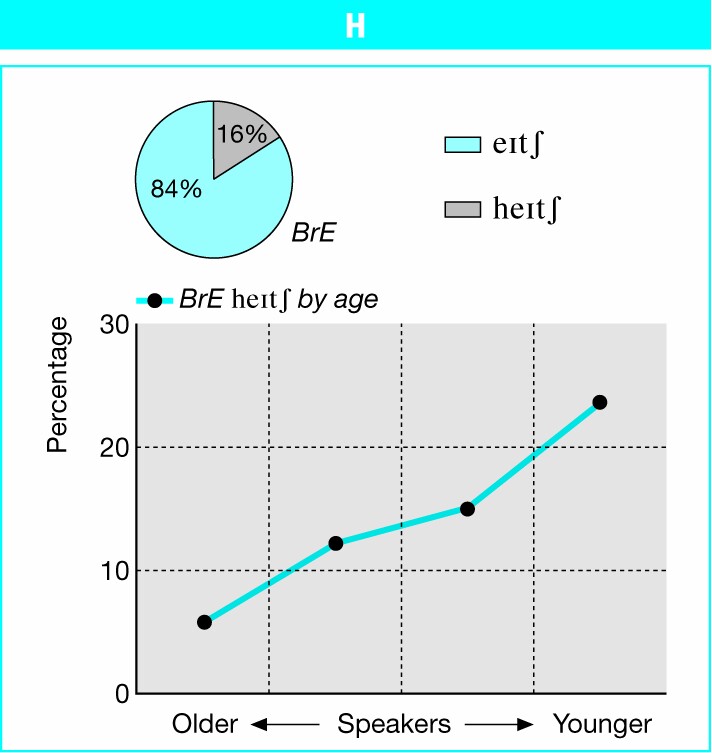DEPARTMENT OF SPEECH, HEARING & PHONETIC SCIENCES UCL Division of Psychology & Language Sciences |
 |
John Wells’s phonetic blog
|
|
At last: Pictures from my 2007 visits to China and Japan

Monday 31 December 2007 | Ring in the old earTinnitus is the perception of sound in the absence of corresponding external sound: an auditory disorder in which you hear a ringing in your ears. How do we pronounce it? Is it tɪˈnaɪtəs, with stress on the penultimate (first choice in LPD) or ˈtɪnɪtəs, within initial stress (first choice in ODP, the only BrE choice in EPD)? Here’ what the American Tinnitus Association says: TINNITUS is pronounced either ti-NIGHT-us or TIN-i-tus. Both pronunciations are correct; the American Tinnitus Association uses ti-NIGHT-us. I remember Michael Ashby telling me he thought that in LPD I ought to have prioritized ˈtɪnɪtəs, for BrE at least. On reflection I rather suspected he might be right. My problem is that being a classicist by training I am perhaps too strongly influenced by my awareness of the quantity of the second vowel in Latin, tinnītus, which implies penultimate stress and aɪ in English. It was one of the items about which people voted in the survey I carried out a few months ago. The results were interesting.
Overall, respondents preferred ˈtɪnɪtəs by a wide margin, and I will change the priorities in LPD to reflect this. However tɪˈnaɪtəs made a strong showing among the youngest voters. There is no sudden recent swing towards studying Latin in our schools, so I am at a loss to explain this. (I am afraid the legend for the lower diagram is wrong. The blue line, by age, shows the stress pattern ·'··, not as written '···.) |
|
Friday 28 December 2007 | Out of the mouth of five-year-oldsSome more about the name of the letter H (blog, 19 Dec.). Lance Eccles says Haitch is common (though slightly stigmatized) in Australia. I mentioned this point 25 years ago in my Accents of English, vol. 2, p. 432, in the chapter about Ireland. The letter H itself [...] is called /heːtʃ/, at least by Catholics. (This is in fact widely considered a sectarian shibboleth, with the Protestants calling it /eːtʃ/, cf. RP /eɪtʃ/.) John Cowan delves into history: From what I understand, the pronunciation /heɪtʃ/ was historically associated not merely with the Irish, but specifically with Irish Catholics, leading to terrorists on both sides of the Troubles requiring their victims to "say 'H'" before dealing out summary "justice". It seems to be a minority pronunciation in Australian English as well, doubtless due to Irish deportation and later immigration. Sidney Allen in his Vox Latina (CUP 1965), p. 45 fn., agrees. ...the name probably derives from a late Latin acc(h)a, substituted for ahha. On Christmas Day I had a conversation with one of the youngest members of the family, Ethan, who is five. He knows the names of the letters, and one of them, he told me, is /heɪtʃ/. His family are Methodists, educated at state schools. So if this pronunciation is or was a religious shibboleth in some places, it certainly isn’t among Londoners today. |
|
Thursday 27 December 2007 | D’oh, doh... duhWhat does Homer Simpson say when he realizes that he has said or done something stupid? You’ll find the interjection spelt variously as d’oh, doh, or duh. It’s a kind of euphemism for damn. Of course it’s not really Homer who says it, but the actor Dan Castellaneta, who plays the part of Homer. The Longman Dictionary of Contemporary English, one of the very few dictionaries (perhaps the only dictionary?) to include the word, spells it d’oh and says it is pronounced dəʊ, dɜː, or in AmE dʌ, doʊ. These transcriptions appear to reflect a confusion between two different interjections. Homer says d’oh, and was perhaps the first to do so; whereas duh was in use in AmE long before the Simpsons appeared on the scene. The former is pronounced like dough; the latter isn’t, but like BrE dir(t) or AmE du(ck). The meaning of duh is different: it is used “to say what someone else has just said or asked is stupid” (LDOCE). According to Wikipedia, the spoken d’oh is a trademark of Twentieth Century Fox. Here’s one version of the interjection as spoken by Homer. |
Monday 24 December 2007 |
Welsh letter namesThis brings together two of our recent topics, names of letters and the Welsh language. The letters of the alphabet have their own names in Welsh. In the case of vowel letters, it is the corresponding vowel sound; in the case of consonant letters, some have the same name as in English, others have a distinctively Welsh name. For details of the letter names and for spelling-to-sound rules, see here (scroll down). The learner of Welsh needs to know these names in order to talk about Welsh spelling and to play word games. A problem arises with the name of the letters I and U. In northern Welsh the letter I is called [iː] and the letter U [ɨː]. But in the south there is no [ɨ] in the vowel system, and speakers use [i] in words where northerners would have [ɨ]. This makes the names of the two letters homophonous unless we can find a way to distinguish them. How can we do that? Rather as the French call the letter Y y grecque [i gʁɛk] to distinguish it from I [i], so the solution for the southern Welsh is to call I i dot and U u bedol. The reason for the first is obvious: dot means ‘dot’, seen in the lower-case i. The reason for the second is that pedol means ‘horseshoe’. (It gets soft-mutated to bedol.) And with a little imagination you will agree that U is shaped like a horseshoe. Apparently an alternative name is u gwpan (cwpan ‘cup’). I haven’t seen these names in any textbook. I learnt them by listening to the teacher when I was going to Welsh evening classes and by watching Welsh-language game shows on television — on S4C, the name of which is spoken aloud as es pedwar ec. Like “haitch” (blog, 19 Dec.), the name ec for C includes an instance of the sound associated with the letter. |
U u ɨ
|
Saturday 22 December 2007 | Rhyme and cynghaneddGunnel Melchers, who like me is now emeritus, tells me that she did a course in Welsh at Uppsala last year. So this is for her. In the text of Ar Hyd y Nos (blog, 20 Dec.) you may have noticed the rhyme scheme. dywedant tywyllwch These are acceptable rhymes within the Welsh literary tradition. But they wouldn’t do in English, for two separate reasons.
Just as in Old English and Old Norse poets used alliteration rather than rhyme, so in the Welsh literary tradition the important thing is not rhyme but cynghanedd [kəŋˈhaneð], in which patterns of consonants are repeated. (But there’s no cynghanedd in Ar Hyd y Nos.) Here’s an example from the poem composed by R. Williams Parry in memory of Hedd Wynn, killed in the first World War when about to be crowned bard at the eisteddfod. Y bardd trwm dan bridd tramor, — y dwylo The poet heavy under foreign earth — the hands The first line up to the dash repeats the pattern b - r - ð - tr - m twice, then across the first two lines we have d - l - d - l, then in the third line d - d - ð - ð and in the fourth ɬ - g - ɬ - g. There is a straightforward rhyme, too, between the second and fourth lines. Y bardd trwm dan bridd tramor, — y dwylo Parry continues this linguistic virtuosity for seven more verses. As with the sonnet, the ghazal, or the haiku, truly beautiful poetry somehow combines memorable words with severe formal constraints. |
|
Friday 21 December 2007 | Instant perfectionHere’s something it says on the BBC World Service Pronunciation Tips website: The sounds of English The ‘system’ referred to is the IPA, or more precisely the set of IPA symbols required for the phonemic transcription of English. So all the EFL learner has to do to ‘pronounce any English word perfectly’ is to know the IPA symbols and consult the dictionary. If only! To state the obvious: the learner needs not only to know the symbols but also to be able recognize and pronounce the corresponding sounds and the differences between them. More subtly, the learner needs to be able to vary each sound according to its phonetic context, i.e. to use positional allophones appropriately. The learner needs to learn to hear and reproduce unfamiliar syllable structures: if you’re Chinese or Japanese, for example, you have to get to grips with the range of word-final consonants and with complicated consonant clusters. Even if your mother tongue is, say, German (very similar in general terms to English), you have to learn to distinguish voiced and voiceless obstruents in word-final position. Then there’s stress. As long as we’re only concerned with “pronouncing [each] word perfectly” I suppose we can do without intonation. Knowing the IPA symbols and looking up the pronunciation in a dictionary will certainly help you avoid one of the most frequent foreigner’s errors, namely that of being misled by the spelling and so not even aiming at the right sounds. But it is not sufficient to give you perfect pronunciation. * * * I have to report that in the 24 hours since I published this blog, the BBC has revised and greatly improved the pages in question. Well done, BBC! | Expert guidance from the BBC website:
Erm... got that? |
Thursday 20 December 2007 | Tangnefedd a thragwyddoldebThe thing that first attracted me to the Welsh language was an LP of community hymn-singing (cymanfa ganu) that I borrowed from a colleague. As a serious linguist, I am of course disposed to set aside all aesthetic considerations when discussing language — but I would be being less than honest if I did not admit that words such as tangnefedd [taŋˈneveð] ‘peace’ and tragwyddoldeb [tragwɨˈðɔldeb] ‘eternity’ seemed to have a wonderful ring to them. And I have always enjoyed singing hymns. When I was in Montserrat in November the local church choir had chosen to do a hymn set to the tune of All through the night. Since this is actually a Welsh melody, Ar hyd y nos, they asked me to sing a solo verse in Welsh between the two verses in English. I had to go on the internet to find the words. |
| |||
| |||||
Note on the phonetic transcription: Some speakers say [i] rather than [ɨ], [ej] rather than [əj]. In the words brydferthwch and tywyllwch the Worcester choir sing [i] rather than [ə]. I have analysed the falling diphthongs as vowel plus /j/ or /w/. Here are two video clips. Both have not only the first verse but also the second. (Be patient while they load. They may not load at all.) This one is sung by Meinir Gwilym with Anwen Jones.
And this one is sung by the Worcester Male Voice Choir (Côr Meibion Caerwrangon).
As we say in Welsh, rhyfeddol [hrəˈveðol] ‘marvellous’. | |||||
|
| |||||
Wednesday 19 December 2007 | Ho, ho, hoHow do we pronounce the name of the letter H? All dictionaries agree that it is eɪtʃ. Only LPD gives an alternative possibility, heɪtʃ, which it marks with the symbol § to show that it is not the RP form. I added the note The form heɪtʃ is standard in Irish English, but not BrE or AmE. This claim is possibly too sweeping, but on visits to Irish universities I had noticed Irish academics at all levels using this form. I was particularly struck by the expression piː heɪtʃ diː PhD. At that time, twenty or thirty years ago, calling the letter heɪtʃ was perceived in England as simply wrong, a pronunciation likely to be used only by the illiterate and uneducated — the people who were prone to h-dropping and to hypercorrect h insertion. But things seem to have changed. Nowadays many younger Londoners, at any rate, call the letter H heɪtʃ. I have taught undergraduates who would defend this as the correct pronunciation, perhaps on the grounds that the name of a consonant letter should contain an instance of the corresponding consonant sound. So I included the question of aitch or haitch in the on-line survey of pronunciation preferences that I conducted earlier this year. Here are the findings.
The overall voting figures were 84% for the traditional form, 16% for the newcomer. As you can see from the graph, heɪtʃ is indeed an innovation that appears to be spreading rather fast. As many as 24% of those born since 1982 voted for it. Even the aitchless millionaire, though sometimes he learns a B.B.C. accent, seldom succeeds in disguising himself as completely as he would like to. Perhaps social commentators will soon be referring to such people as ‘haitchless’. | H h H h |
Tuesday 18 December 2007 | OsteoporosisA Japanese learner of EFL has a question on the pronunciation of the word osteoporosis. He points out that for the antepenultimate syllable in BrE LPD and OALD give different vowels:LPD -pɔː-Both give the latter for the American pronunciation. Indeed, most dictionaries give the -pə- form rather than -pɔː-. So is LPD simply wrong? Yes, in one sense. It ought at least to include -pə- as a variant, if not as the main pronunciation. But the issue is more complex than that. English vowels can be strong or weak (reduced). Many, but by no means all, vowels in unstressed syllables are weakened. (Thus for example we pronounce specify, where the first syllable is stressed, with /e/ but specific, where it is unstressed, with /ə/ or /ɪ/.) In a fair number of words we have a choice between weakening and not weakening. For example, the first syllable of September and November may have strong /sep-, nəʊ-/ or may be weakened to /səp-, nə-/. The -day at the end of Sunday, Monday, birthday etc. may be strong /-deɪ/ or weak /-di/. The choice depends partly on style, with the strong variant in slow, careful speech or in salient positions (e.g. utterance-finally), and the weak variant otherwise. Partly it may depend on geographical or social factors, or just on the individual speaker: some prefer one, some prefer the other. However osteoporosis is a technical term. In such words, not well known to most people, there is often a slower, less reduced, version, typically used by experts to laymen, or by members of the general public who happen to have reason to know and use the word, and a faster, more reduced version typically used by experts speaking among themselves. So phoneticians may well pronounce accented with /æk-/ when talking to non-specialists, but with /ək-/ when talking to other phoneticians. If I used this word in a lecture to an EFL audience I would try to remember to use the strong vowel. But chatting to colleagues I would probably use the weak one. Similarly, a British doctor talking to a patient, particularly when bringing up the topic of osteoporosis for the first time, would (in my view) be likely to say /-pɔː-/; but with colleagues they would probably say /-pə-/. Saying /-pɔː-/ helps the patient identify the written form of the word: -por-, not -par- as in hemiparesis, nor per- as in peripheral, nor -pyr- as in antipyretic. There are also morphological and etymological considerations. Some people who use the word will be aware that osteoporosis is a condition (-osis) characterized by bones (osteo-) that are porous (-por-). To them the meaning of the word is transparent. To others, not. Full marks to EPD, which gives both -pə- and -pɔː-. I bet that whatever we do in osteoporosis, most of us would use /-pɔː-/ in the less familiar adjective, osteoporotic (see illustration). |
Monday 17 December 2007 | O lift: your voiceAt the dental surgery where I have my teeth done there are five floors, or six counting the ground floor. There is a lift with an automated recorded voice telling you what the lift is doing and where it has got to. I was struck by the intonation patterns of the recorded voice as I went up to the top. 'Doors \closing. These patterns are just what a human operator might use, which is perhaps only to be expected given that they were recorded by a living human being. We have a fall on a declarative statement, followed by a non-final rise (because there is more to come), followed by another non-final tone, this time a fall-rise (because there’s still another floor to go), then another fall-rise (a warning), a repeat of the second line, and finally a fall proclaiming that we’ve reached our destination. This was followed of course by a repeat of the warning 'Doors \/opening. What is interesting is the difference of tone between four and five. Although this fitted in excellently with my progress upwards, presumably it arose by accident, since the voice-over actress probably recorded ground floor || floor one || floor two || floor three || floor four || floor five — with the usual listing sequence comprising a rise or fall-rise on the non-final list items and a fall on the final one. Then the speech engineer chopped them up into separate sound files for the onboard computer to use. Coming down again I had the lift to myself. 'Doors \closing. With a fall instead of a rise on floor here it would have been perfect. I have to congratulate the anonymous speaker on saying going up with an iconic rising tone and going down with an iconic falling tone. Not all would-be students of intonation, let alone members of the general public, can identify and reproduce the difference between rises and falls. |
|
Archived from previous months:
To search my web pages, use this Google search.













